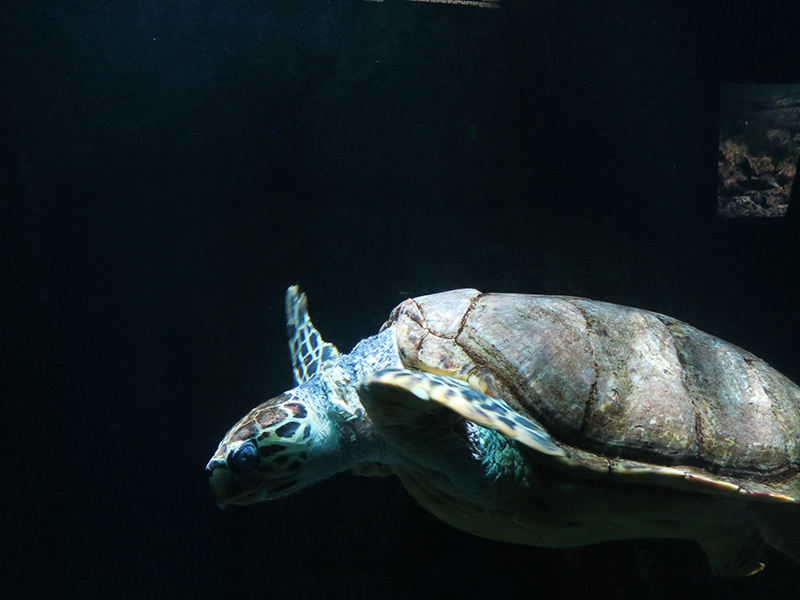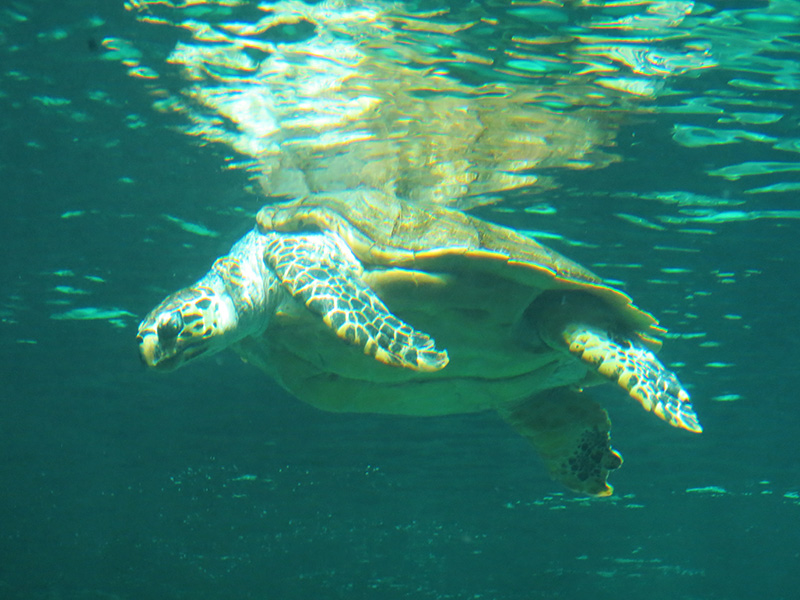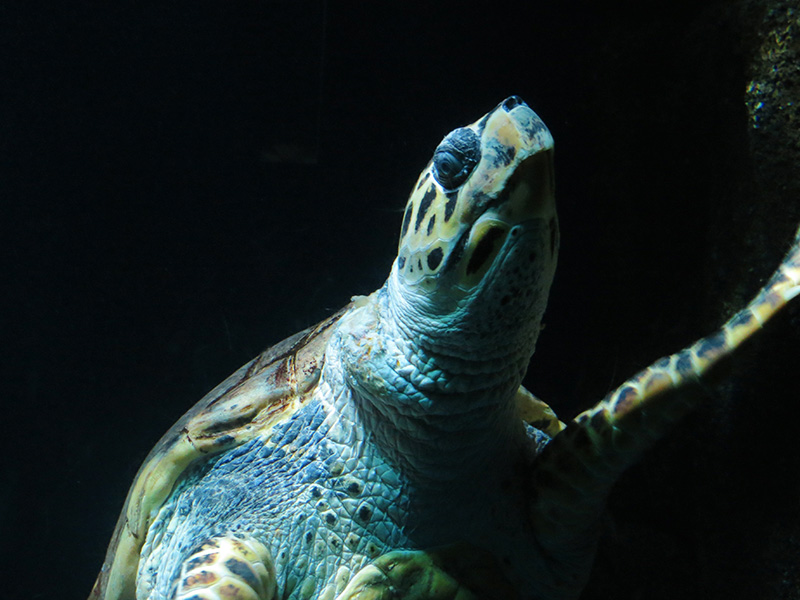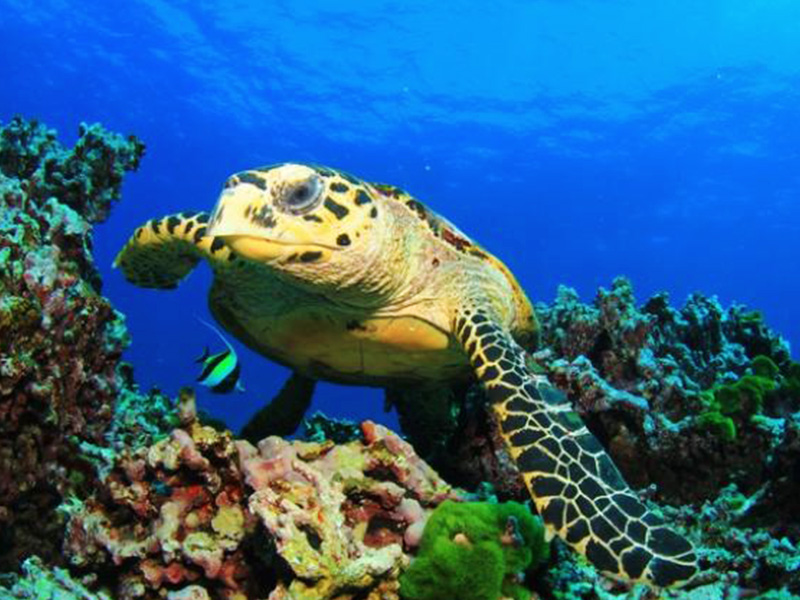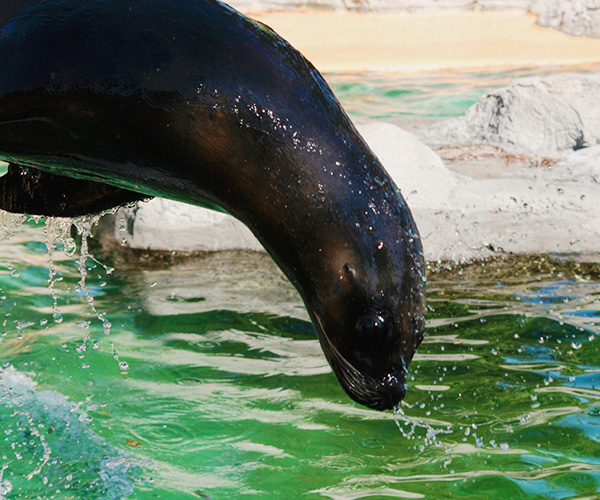The hawksbill turtle is a sea turtle distributed in tropical and subtropical areas of the Atlantic, Indian and Pacific oceans. It is a well-traveled animal, capable of nesting in at least 70 countries around the world. One of its main characteristics is its shell, formed by overlapping plates and serrated edges. This carapace, in which yellow, black and brown colors predominate, is mottled in a radial pattern. It has fin-shaped limbs ending in two nails per fin, as well as a sharp, curved beak and a prominent upper jaw.
Hawksbill turtles are diurnal and follow complex migratory routes. They usually travel alone through the reefs and continental shelf areas, passing through different habitats, in search of food. An opportunistic predator, its diet is based on the capture of sponges, as well as jellyfish, anemones, squid and gastropods.
Females reach sexual maturity very late compared to other animals, between 17 and 40 years of age. The mating season varies according to geographic location. Mating takes place in shore waters. They lay 3 to 5 clutches per season with about 80-180 eggs in each clutch, but will not breed again for 2 to 4 years. Incubation lasts about 60 days. Their life expectancy reaches 50 years.
